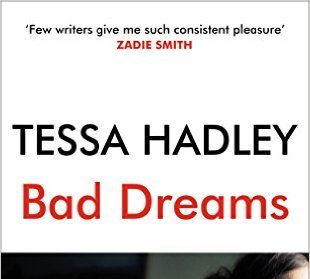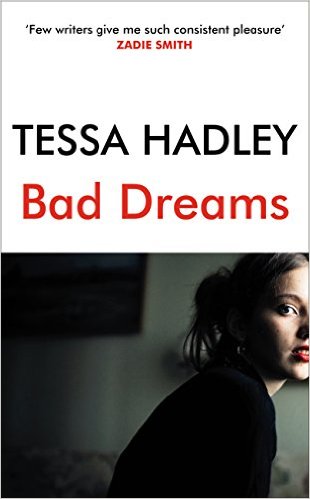Rabeea Saleem reviews Bad Dreams by Tessa Hadley, showing how her stories capture the multifaceted life experiences of so many women.
In the title story ‘Bad Dreams’, a young girl wakes up from an eerie dream in the middle of the night. The dream is so disturbing that “the strong dread it had left behind didn’t subside with the confusion of waking.” In the dream, she was reading her favourite book, Swallows and Amazons, the classic story of an adventurous group of young children. It’s one of those books she has read countless times but strangely, in her dream, her subconscious has conjured up an epilogue that did not exist in the real book, and which recounts the gloomy fates of these perpetually joyous children. She finds out that one of her beloved characters drowned, another was killed in an unfortunate accident; others also met pitiful ends. The bleak destinies of the characters she so dearly loves was what startled her from her sleep. Now awake, she can’t shake off this daunting prescience, which she can’t unlearn. The description of how this morbid dream tainted this child’s naivety is acutely unsettling. “The litany of deaths tore jaggedly into the tissue that the book had woven, making everything lopsided and hideous.”
The story continues with the girl walking around in the darkness, taking in the haunting details of her house. Like her dream which coaxed her out of her childish innocence, the house seems to be waiting to share its secrets with her. She discovers in the darkness that all the details that seem so obvious might as well be invisible in daytime. The atmosphere of stark reality among the mundane that Hadley weaves is beguiling, and is apparent in all the stories in this collection.
The slice of life tales in Bad Dreams all feature female protagonists. With parochial plots, these stories focus on the internal worlds of its complex principal characters. They are snapshots of the different experiences women go through. Tess Hadley has an uncanny ability to latch onto the myriad conflicting emotions a person can feel in one moment. She captures the most fleeting moment, homing in on all the nuances in glorious detail.
What works about her stories is that while they all involve the characters contemplating their interior monologues, her shrewd insights makes these passages captivating rather than dull. In ‘Under the Sign of the Moon’, while two strangers are having an erudite conversation full of platitudes, Hadley focuses on our conflicting needs to confide in other people and at the same time guard our private lives.
Most stories start with a young girl in the middle of a crucial experience – not life-changing in the scope of its impact the seemingly prosaic moments that are the most affecting. Later the stories fast forward to the same women in later days of their lives. Readers chart how a trivial conversation or event that took place decades ago changed someone’s enduring outlook on life.
Another consistent theme in this collection is that of remembrance. Tessa Hadley explores the multifaceted ways our past and present collide, the influence they exert on us and how much of our past experiences we carry with ourselves. Hadley’s keen psychological acumen and talent for capturing people at different moments in their lives renders these stories profundity. Most of the stories in Hadley’s new collection end with an epiphany, adding something substantial to the way her characters, and her readers, perceive life.
Tessa Hadley’s Bad Dreams is published by Penguin Books.












